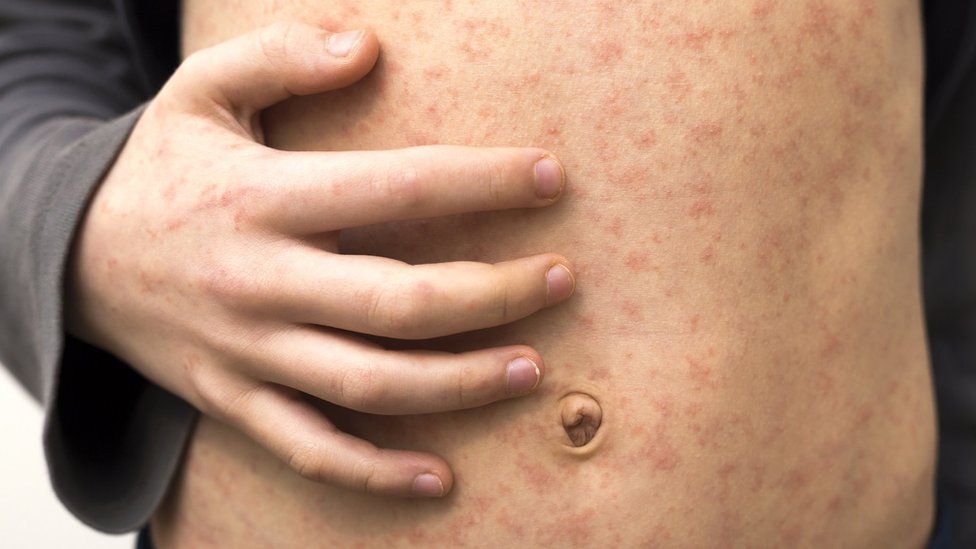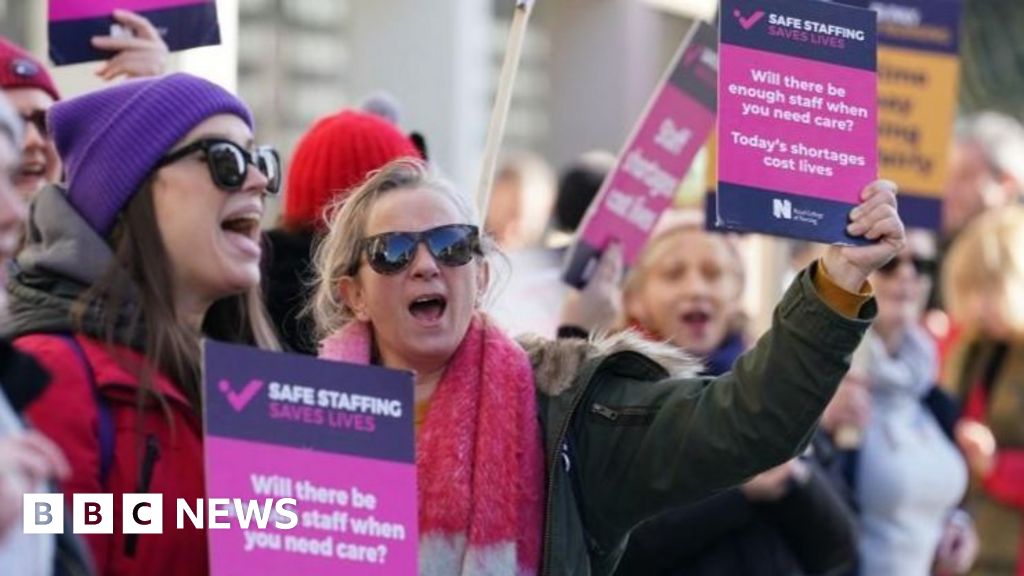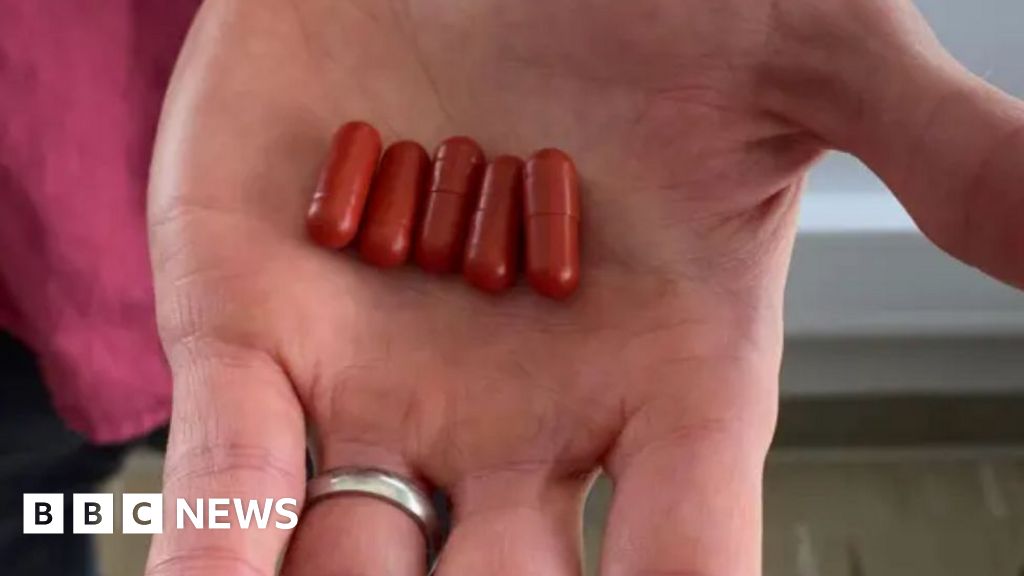ARTICLE AD BOX
 Image source, Getty Images
Image source, Getty Images
By Andy Giddings
BBC News, West Midlands
Measles outbreaks are rising across England, with areas including the West Midlands seeing their highest number of cases since the 1990s.
It has prompted health officials to encourage people to get vaccinated, with official figures showing uptake of the measles, mumps and rubella (MMR) vaccine is at its lowest point in more than a decade.
Here the BBC answers some of the questions people have been searching for.
What is measles?
Measles is a highly contagious disease which is spread by coughs and sneezes.
In most cases it can be unpleasant, but will usually pass between seven and 10 days without causing any further problems.
However, it can lead to serious problems for some if it spreads to other parts of the body, such as the lungs or brain.
It can cause serious problems such as pneumonia, meningitis, blindness, and fits, with certain groups such as babies and small children, pregnant women and those with a weakened immune system more at risk.
It can cause death, but this is rare. Government figures from 2022 show since 2000, there were eight deaths in children or adults that could have been prevented by having the vaccine.
What are the symptoms?
High fever, sore, red and watery eyes, coughing, sneezing, aching and feeling generally unwell are all common signs of measles. A blotchy red/brown rash usually appears after the initial symptoms.
People with measles remain infectious until at least four days after the onset of the rash, so they should stay away from nursery, school, university, work and other group activities until then.
Image source, NHS
Image caption,The spots of the measles rash are sometimes raised and join together to form blotchy patches
The NHS says the best way to prevent measles is by getting both doses of the MMR vaccine.
For people who do not consume pork products, there is a version of the vaccine called Priorix which has no pork ingredients which can be requested from a GP.
How is measles spread?
The virus is contained in tiny droplets that come from the nose and mouth when an infected person coughs or sneezes.
Measles is caught by breathing these in or touching the droplets and then placing your hand near your nose or mouth.
The virus can survive on surfaces for a few hours.
People with measles become infectious from when the symptoms develop until about four days after the rash first appears.
Ruth Tennant, the director of public health for Solihull, in the West Midlands, said: "I think we'd forgotten quite how infectious and nasty measles can be."
Why is there an outbreak now?
It is unclear where the current outbreak originated, but official figures show uptake of the MMR vaccine is at its lowest point in more than a decade.
In 2022/23, some 84.5% of youngsters in England had received both doses of the jab by the time they were five years old - the lowest level since 2010/11.
Image source, Getty Images
Up to 92.5% had received one dose, the figures show.
Where are the worst affected areas?
The majority of measles cases in the West Midlands - 80% - have been found in Birmingham, while 8% were identified in Coventry, with the rest spread across surrounding areas.
Ms Tennant said since the beginning of October, there had been more than 250 confirmed cases in the region and numbers had picked up since Christmas.
Letters have been sent to all schools in Birmingham to warn parents if their child is not immunised from measles they could be made to isolate for three weeks, if exposed.
Pop-up vaccination clinics have been set up in the Black Country to help ensure children aged 12 to 16 are up to date with their MMR jab.
How do I protect myself and my family?
John Denley, Wolverhampton's director of public health, said: "The best way to prevent measles in the first place is by getting both doses of the MMR vaccine, which is both safe and effective."
The two-part MMR vaccine is given as part of the childhood vaccination programme.
However, patients can be vaccinated at any age if they have not been fully vaccinated before.
Image source, Getty Images
Image caption,Measles is highly infectious but one attack usually gives life-long immunity
There is an alternative for those not suited to the MMR vaccine, called human normal immunoglobulin (HNIG). This can be used at for people at risk of catching measles.
People who develop the symptoms of measles are advised to stay at home and phone their GP or call the NHS on 111 for advice.
Those with symptoms are asked not to visit their GP surgery or hospital because of the risk of passing it on.
The NHS says it is important to seek medical advice if pregnant women or anyone with a weakened immune system has been in contact with someone with measles.
Does the vaccine have side effects?
Most side effects are mild and do not last long.
The area where the needle goes in can be red, sore and swollen for up to three days and babies and young children may feel unwell or develop a high temperature for up to three days.
There is no evidence of any link between the MMR vaccine and autism.
The NHS says: "There are many studies that have investigated this."
A purported link was made in one discredited study in 1998, causing vaccination rates to drop. The research was later dismissed and its author struck off by the General Medical Council.
What should I do if I get measles?
The NHS advises patients to take paracetamol or ibuprofen to relieve fever, aches and pains, but aspirin should not be given to children under 16 years old.
It says people with measles should drink plenty of water to avoid dehydration and close the curtains to help reduce light sensitivity.
Image source, NHS
Image caption,Two forms of MMR vaccine are used by the NHS
It also advises using damp cotton wool to clean the eyes.
Because measles can spread easily, people with symptoms are asked to stay off school or work for at least four days from when the rash first appears.
It is advised that people regularly wash their hands with soap, use and dispose of tissues when they sneeze and avoid close contact with anyone who is not fully vaccinated.
Can you get measles twice?
Once you have had measles, your body builds up resistance to the virus.
The NHS says it is highly unlikely you will get it a second time.
Follow BBC West Midlands on Facebook, X and Instagram. Send your story ideas to: newsonline.westmidlands@bbc.co.uk
Related Internet Links
The BBC is not responsible for the content of external sites.

 1 year ago
92
1 year ago
92








 English (US) ·
English (US) ·